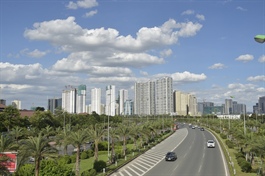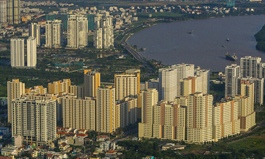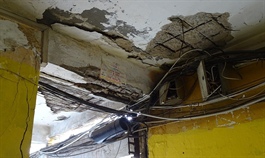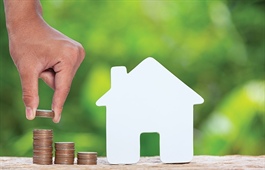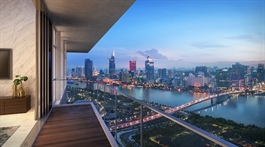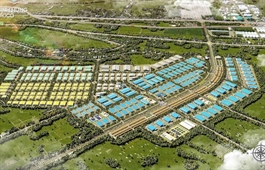Hybrid model, the new rising trend in office market
Hybrid model, the new rising trend in office market
A hybrid working model comprising both remote and office-based work is a trend that many companies will embrace since working methods have changed globally after the pandemic broke out, including in Viet Nam, experts have predicted. 
In a note on trends in the property market this year, property consultancy Jones Lang LaSalle (JLL) said a year of lockdowns that forced people to work from home showed many tasks could be done remotely, spurring companies to adopt new, hybrid working models.
The shift was already underway at many businesses, but was accelerated by COVID-19 like many other things, it said.
“In 2020 a work from home experiment took place globally and showed that businesses can continue to operate effectively by leveraging technology” Paul Fisher, country head of JLL Vietnam, said.
“But for many, the lack of face-to-face interaction has put pressure on teams and whilst a number of our clients expect to adopt flexible working practices in the future, for the majority this will include the office remaining the central point for business activities.”
But many aspects of work would not change, the note said. People would still need to collaborate, innovate and liaise with managers on projects and their careers, a reason why people missed the office, and it was why for many offices would retain a central role in corporate life.
The office still existed as the best and most convenient place for team building and connecting with management.
WeWork predicted at an ongoing roundtable on office trends in the region that beyond economic pressures and realities that enterprises face, tapping new workspace strategies is crucial for future-proofing themselves in a volatile climate.
Amidst the changing face of its enterprises, Southeast Asia is seeing a shift towards flexible workspaces bridging enterprises’ challenges and opportunities, it said.
Talking about the future of the workplace after the pandemic, Elizabeth Fuller, the company’s head of growth, SEA, said after a year of pandemic working from home might be an alternative option for many companies.
But this is not sustainable for businesses in the long term, she claimed.
In the workplace, innovation, creativity and organisational health hinges on successful collaboration, and a loss of these would hinder sustained business performance, employee engagement and organisational health in the long run, she said.
The new work order would thus be a hybrid of flexible workplace arrangements, she said.
She cited the example of two Fortune 500 companies that have expanded their presence with WeWork across several buildings by establishing a headquarter presence in one location and supporting functions and business units in the others.
“They have leveraged our CBD presence, with locations in close proximity to each other. This allows them to scale accordingly without having to renegotiate existing real estate commitment, implement distributed workforce as a safety measure and also enjoy engagement.”
Property consultancy CBRE said the pandemic has changed the structure of office demand.
Due to COVID-19, technology and online shopping utilisation have increased significantly, which led to the expansion of e-commerce companies last year, it reported.
The pandemic has also changed the real estate strategies of occupiers. Previously employees were heavily relying on being in office, but are now more willing to work in different spaces.
Pham Ngoc Thien Thanh, associate director, CBRE Vietnam, said: “COVID-19 has reshaped the market’s dynamics, and unaffected sectors will drive market demand in 2021.
“Besides, tenants will start paying more attention to all factors including saving rental costs, ensuring employees’ wellness and maintaining business performance.
“To do that, occupiers tend to adopt a hybrid workplace model, designing offices with lower density and also diversifying the workplace into different sites such as decentralised options and co-working spaces.
“The market will be intensely competitive in the next two years with a wave of new supply. To stay ahead of the competition, landlords should consider applying workplace strategy tools to evaluate current strengths and deficiencies of their buildings to come up with an optimal solution to increase their assets’ values.”
The HCM City office market remained in a deep slump last year due to COVID, which badly affected many enterprises. It witnessed negative net absorption of - 20,544sq.m of leasing area.
Three new office buildings came into the market, Friendship Tower (grade B), UOA Tower (decentralised grade A) and Opal Tower (grade B), with a combined 65,372sq.m of net leasing area, but it represented a fall of 31 per cent in area compared to the previous three years.



